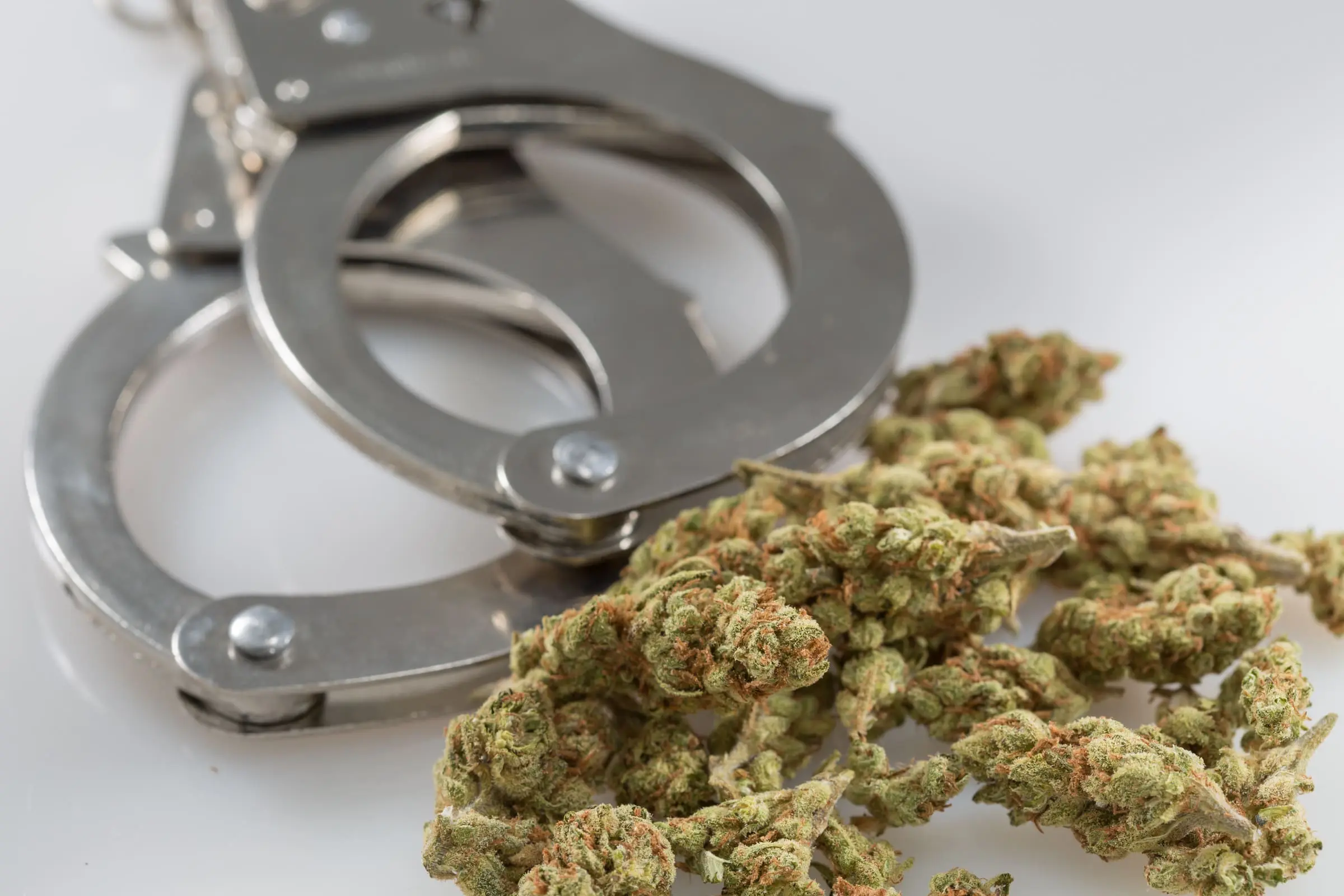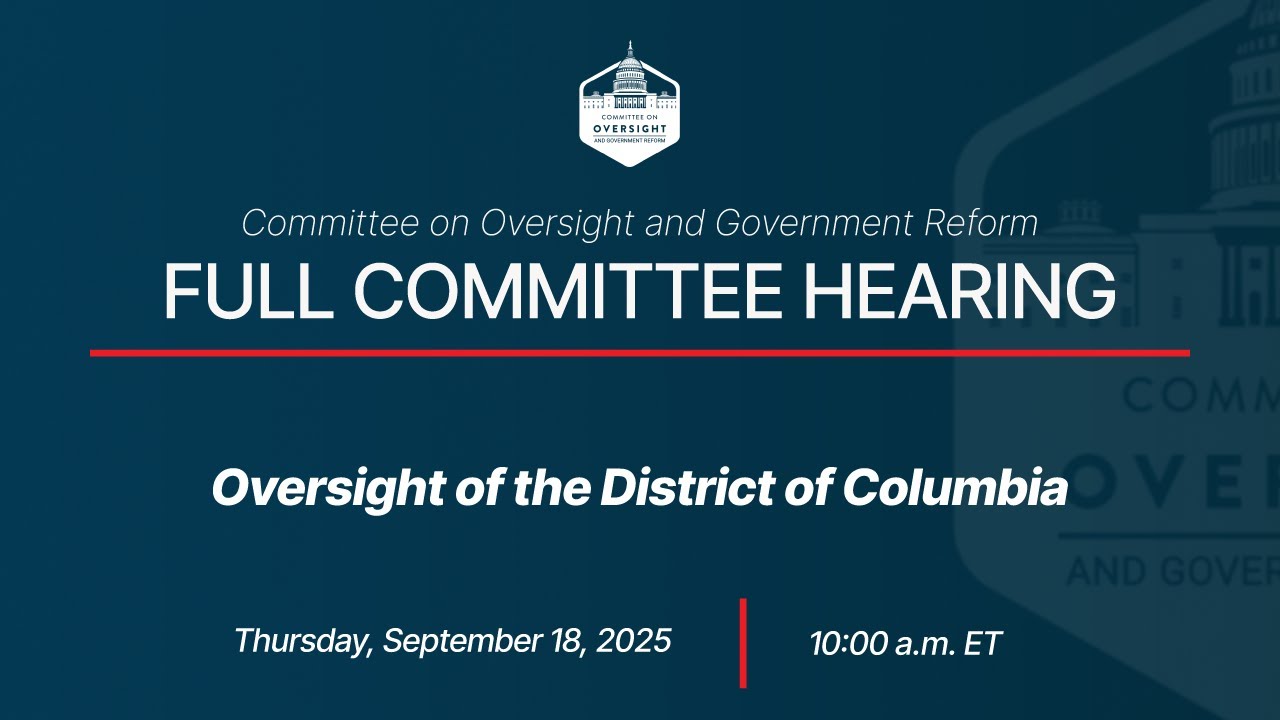Politics
GOP Congressman Acknowledges ‘Trace Of Racism’ In Marijuana Laws—But Says Advocates Have Gone Too Far With Criminal Justice Reform

A GOP congressman says that, while he supports overturning certain criminal justice reform policies enacted by local officials in the nation’s capital, he does acknowledge there’s “a trace of racism” in marijuana enforcement. But, he said, advocates have gone too far in their pursuit of scaling back harsh sentencing laws.
During a hearing before the House Oversight and Government Reform Committee last week, Chairman James Comer (R-KY) addressed Washington, D.C. officials and lawmakers about congressional efforts his panel is leading to overhaul multiple local laws. One of the congressional bills would restrict the District’s ability to enact sentencing reform.
“Now, I supported criminal justice reform back when it first became a thing in Kentucky. So did another Republican, [Sen. Rand Paul (R-KY)] at that time,” Comer said. “It dealt with incarcerating young people because of possession of marijuana.”
“I believed then, and I still believe, that there was an excessive penalty to pay for what is now legal in most states: Marijuana. And it did appear to me, by the numbers, to have a trace of racism in it,” he said, adding that Black youth appeared to be disproportionately impacted by criminalization.
“But over time, the activists continued to expand that and expand that to no bail, cashless bail, to raise the age of of what is a juvenile and to treat juveniles to where they got a slap on the wrist, even if they committed a serious crime. And that’s why we stepped in,” the congressman said.
This comes weeks after Comer’s committee approved a bill to repeal a D.C. law expanding expungements for marijuana possession.
A Democratic congresswoman subsequently accused Rep. Byron Donalds (R-FL) of hypocrisy for sponsoring the legislation when his own charge for marijuana possession in his youth was dismissed under a court’s discretion.
The cannabis expungement policy is part of the Second Chance Amendment Act, a District law passed in 2022 that took effect the next year.
Under the law, the District’s judiciary was mandated to automatically expunge marijuana possession records for offenses that took place before D.C. enacted a limited cannabis legalization law in 2014.
Advocates have already been frustrated with congressional interference with the District’s cannabis laws—particularly the annual renewal of an appropriations rider from Rep. Andy Harris (R-MD) barring D.C. from using its local tax dollars to implement a system of regulated recreational marijuana sales.
While Comer oversaw the repeal bill vote, he previously signaled that he’d be open to revisiting the rider. Asked about the possibility of lifting restrictions on D.C. legal cannabis sales, he said in late 2023 “if that’s what Washington D.C. wants, yeah.”
Earlier this month, the House Appropriations Committee again advanced the underlying spending bill with the rider kept intact.
—
Marijuana Moment is tracking hundreds of cannabis, psychedelics and drug policy bills in state legislatures and Congress this year. Patreon supporters pledging at least $25/month get access to our interactive maps, charts and hearing calendar so they don’t miss any developments.
![]()
Learn more about our marijuana bill tracker and become a supporter on Patreon to get access.
—
Rep. Eleanor Holmes Norton (D-DC) has criticized appropriators for putting forward a bill that restricts the District’s autonomy in a number of ways, including the rider to “prohibit the use of funds to commercialize recreational marijuana.”
“I am outraged at the number and scope of anti-D.C. home rule riders in the bill released today,” Norton said when the measure cleared subcommittee in July.
The congresswoman said in May that she would again again push her colleagues to join her in an effort to remove the cannabis language.
“As Congress works on the fiscal year 2026 appropriation bill, I will continue to fight to remove this rider,” she said, while referencing a statement from the White House that called the District’s move to enact local marijuana reform an example of a “failed” policy that “opened the door to disorder.”
President Donald Trump’s budget request that he released in June similarly contained the Harris rider preventing marijuana sales in D.C., despite voters in the jurisdiction voting to approve legalization in 2014. Former President Joe Biden also repeatedly requested the continuation of the D.C. cannabis rider in budget proposals during his time in office.
While D.C. hasn’t been able to use its local funds to implement a system of regulated recreational cannabis sales over the last decade, local officials have taken steps to expand the city’s existing medical marijuana program as a workaround.




